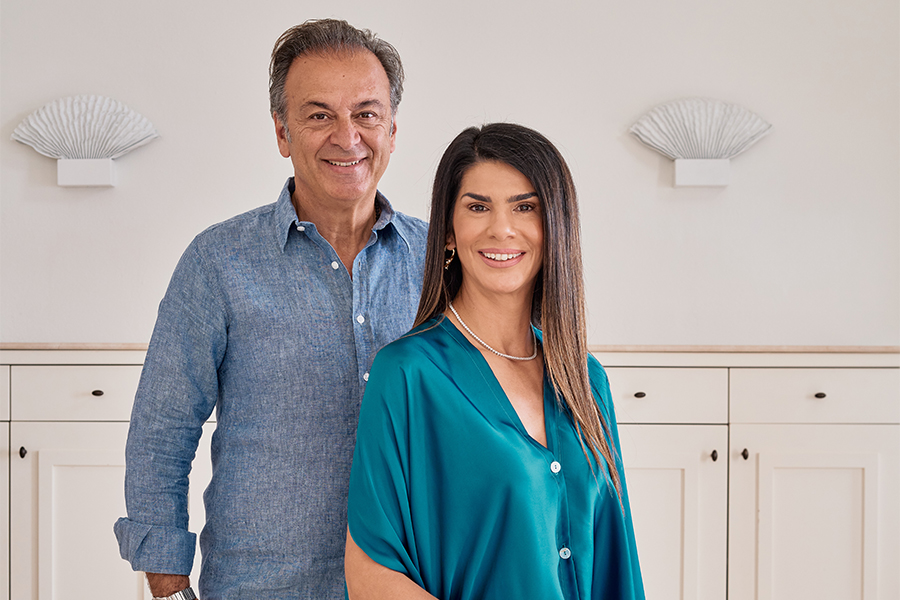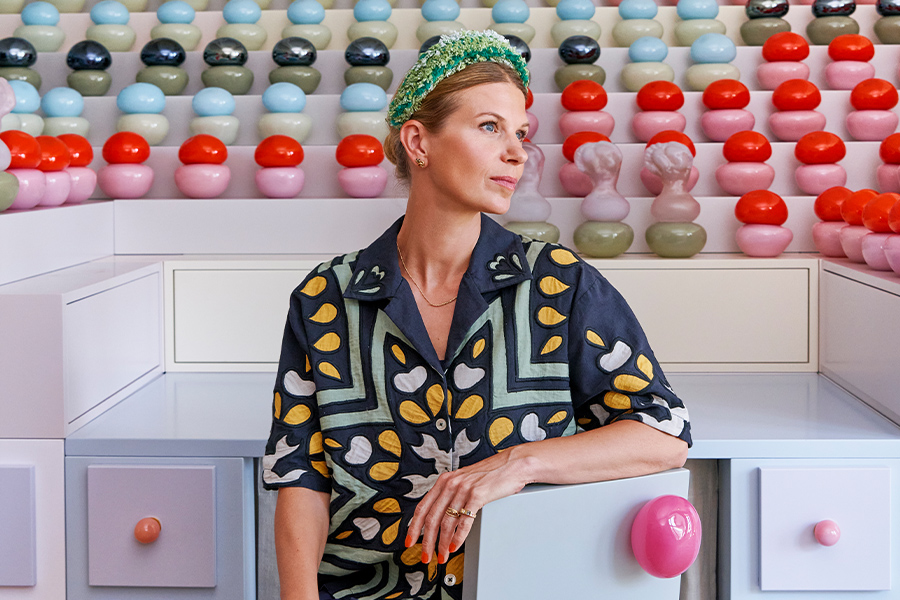Despite almost two decades in the hospitality industry, Tel Aviv-born Liran Wizman got his start as a lawyer, and even practiced in Israel after graduating. But when the opportunity to represent a group of real estate investors in Amsterdam and Berlin arose, he jumped at the chance and moved to the Netherlands where he quickly realized his true passion for hotels: “You can do more; you can influence more,” he explains.
In 2001, he founded Grand City Hotels Group (now a collection of 120 hotels). Soon after, he bought the Park Hotel Amsterdam, transforming the cookie-cutter property into a destination for locals and visitors alike, due in large part to pan-Asian restaurant Momo, designed by Israeli firm and longtime collaborator Baranowitz + Kronenberg. “I saw how people appreciate a public area [in a hotel],” he says of the project, which recently celebrated its 10-year anniversary.
Momo was the first outlet for turn-key F&B operator, Entourage Group, which he founded with partner Yossi Eliyahoo in 2004. At the same time, Park Hotel was the seed to start hotel management firm Europe Hotels Private Collection (EHPC) two years later, which is now a collection of 13 hotels (ranging from 3- to 5-Star properties) under three distinct brands: Sir Hotels, Max Brown, and Park Hotels.
The launch of Sir Hotels in 2013 gave Wizman the opportunity to create a branded collection of boutique properties with deep, individualized connections to their cities, and a strong focus on public areas and F&B that are the heart of the hotel, and rooms that offer an escape from the bustling cities. As the definition of luxury continues to evolve, “We aren’t interested in the traditional concepts of luxury but we still want to impress our guests with stunning design that looks and feels good, paired with intuitive service,” he points out. The brand’s robust growth in Europe is marked by two Sirs in Amsterdam, in addition to Berlin, Hamburg, and Ibiza, with Barcelona next.
EHPC’s other major brand, Max Brown Hotels, is more low-key and affordable in coveted, central locations (think Amsterdam, Düsseldorf, and Berlin with Vienna on the boards), offering guests a more private, apartment-like experience. Its elevated, “cut-the-bullshit” approach speaks to a different kind of luxury customer. “Travelers are more multidimensional than ever before,” he says. “Just because you have a higher budget, doesn’t mean that you’ll stay at a super fancy hotel, and vice versa.”
Wizman also owns the W Amsterdam. After purchasing the former telephone exchange building and the adjacent KAS bank, he pitched Starwood (now Marriott) on introducing a 5-Star luxury brand to the city, one that was “cool enough to be freer” with its design. Wizman once again called upon Baranowitz + Kronenberg for the project. “When we build something together, we don’t need to talk,” he says of their frequent partnership. “It’s almost telepathic.”
Indeed, the hotelier has found a niche seeking out inventive, out-of-the-box design firms. From FJ Stijl’s eclectic Sir Nikolai in Hamburg to New York firm ICRAVE’s edgy Sir Adam, Wizman is attracted to designers who are willing to forego convention, those who get his vision. Currently, Wizman is teaming up with Ian Schrager to transform a centuries-old building in Milan into the latest EDITION property. Set to debut by the end of 2020, the palatial building boasts huge public spaces with 45-foot-tall ceilings. Always diversifying, Wizman also has a number of other properties in the works, including the opening of the renovated Hotel Omm in Barcelona as Sir Victor in 2019.
With EHPC’s expanding slate, “usually my office is split between the lobby of my hotels, the restaurants, and my office in our headquarters,” Wizman explains. His actions speak to his endgame. “[I’m trying] to eliminate the borders between hotel, apartment, restaurant, and office. Now, everything is more fluid than ever. What I create are places people need in our constantly changing world.”


